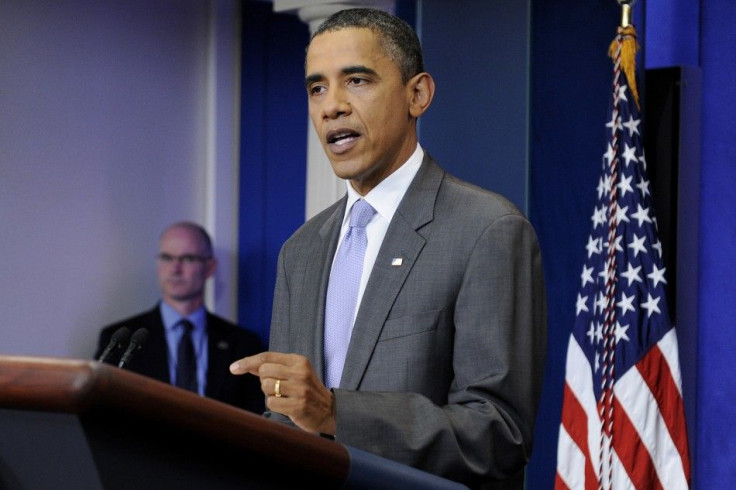The Debt Deal: Barack Obama's Big Mistake
COLUMN

Political observers are already questioning why President Barack Obama didn't demand more from Republicans in the debt deal.
They suggest Obama yielded more leverage to Republicans than deserved, considering Conservatives had already agreed that raising the debt ceiling was a must. But pushing Republicans harder in recent days, with an Aug. 2 deadline looming, became a risky proposition for the President and the nation.
Faced with few better options with only a day or two remaining, Obama did what he felt he must to settle America, and world markets, as the threat of default inspired fear.
But Obama's big mistake in the debt deal was letting it get this far.
In 2010, Obama had all the leverage needed to easily raise America's debt ceiling as a sitting Democratic president when Democrats controlled Congress. Instead, Democrats passed on addressing the issue during a lame duck session, most likely because fiscal conservancy had been such a polarizing issue in the 2010 mid-term elections.
Strong political leadership would have forced the issue with majority control regardless, however. Everybody, including Republicans, knew it was inevitable. America's debt ceiling had to be raised.
But when Obama had the opportunity to easily get it done, saving the nation pain and positioning Democrats with future leverage to later tackle the budget on its merits alone, he balked.
Things have never gone this far in the nation's political history, whereby the issue of raising the debt ceiling became more than a functional debate on just that. But because he and Democrats avoided the issue in 2010 all the way through the lame duck session after the mid-term elections, Obama put America in a very difficult situation.
The eyes of the world cast down poorly upon this nation in recent weeks as leaders grappled painstakingly over the budget and fiscal change, melding issues of fiscal and social policy with the most pressing issue at hand -- the debt ceiling.
It's true that Democrats would have faced public ire in 2010 by raising the ceiling. Republicans had made the issue a lightning rod in mid-term elections and beyond, despite the fact that they had no better solution. There was just one option all along -- raising it -- but Obama and the Democrats didn't want to address it in late 2010 because they wanted to pass the buck of responsibility.
They effectively did just that, thrusting upon this nation one great embarrassing mess.
Additionally, had Obama and Democrats tackled the debt ceiling issue swiftly and effectively when they had control of Congress in 2010, budget negotiations and fiscal policy that became such a quagmire recently could have been handled in an entirely different way.
Talks could have been more productive, and Obama wouldn't have felt the pressure of the resulting Aug. 2 deadline.
So observers may be right in suggesting that Obama yielded to Republicans on the debt deal more than he had to. But it wasn't pressure from Republicans that was the problem so much as pressure from the Aug. 2 deadline, which could have and should have been avoided.
© Copyright IBTimes 2025. All rights reserved.



















